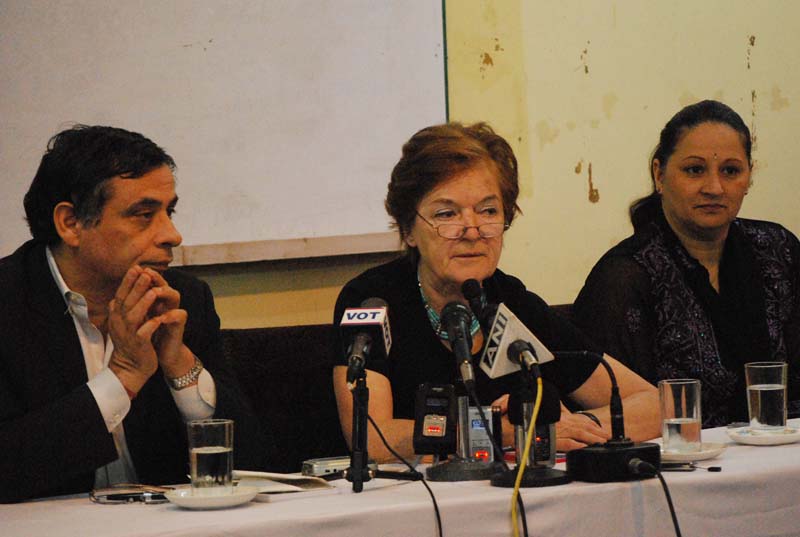 The committee is one of two institutions in Brussels which advises the European Parliament. President Mario Sepi accepted a personal invitation from the Committee's Chinese counterpart, the Economic and Social Council of China last October to visit Tibet.
The committee is one of two institutions in Brussels which advises the European Parliament. President Mario Sepi accepted a personal invitation from the Committee's Chinese counterpart, the Economic and Social Council of China last October to visit Tibet.Over the course of the three-day visit to Dharamshala the committee has met with His Holiness the Dalai Lama and Prime Minister of the Tibetan Government Samdhong Rinpoche in Exile to discuss how the EESC, with its potential 36 million euro budget, can best help the Tibetan people.
Sepi has said the visit's intentions were to,"increase our knowledge of the economic and social situation in Tibet, as well as [to explore] all possible fields of cooperation and dialogue which can be developed, especially in the areas of education, access to employment, health-care, and gender equality."
Anne-Marie Sigmund, head of the delegation, outlined the purpose of the EESC's Dharamshala visit, "We are here on a fact-finding mission. We want to go back with a lot of knowledge and possibilities to create networks in order to put in place some concrete activities."
Henri Malosse, President of the Employers' Group of the EESC, stressed the importance of developing a stronger EU-Tibet business relationship through the EESC. "We will engage to strengthen the local civil society, to see how we can build up contacts and partnerships with European and other partners to engage in concrete projects with the [Tibetan] Chamber of Commerce, with the business sector and with small scale industry," assuring attendees that "We will not just go back with a nice picture with the Dalai Lama (...) We have concrete proposals and projects."
Marie Schama, a UK member of the institution, said "We have heard from the Dalai Lama that he would like more help for small-scale industry. We learned from the Tibetan chamber of commerce that they would like to develop more links with European businesses to help them grow."
The conference' main focus was on the importance of investing in youth-oriented projects. Schama spoke highly of her visit to the Tibetan Children's Village, and stated her intentions to start an entrepreneurship program, along with microcredit initiatives to encourage students into enterprise.
The scarcity of scholarships for Tibetan students, most of whom face severe financial difficulty in pursuing higher education, was addressed by Sigmund, who pointed out that while Erasmus Mundus scholarships were available for both Chinese and Indian students, but that Tibetan students did not qualify for either. Sigmund promised that "We will explore the possibilities of making Erasmus Mundus [scholarships] available for Tibetan students."
Malosse also brought up the possibility to establish a Tibetan University in order to encourage learning and preserve Tibetan culture.
Following on from the Dalai Lama's recent call for more women in leadership roles, the Committee was active in discussing initiatives to provide more opportunities for women in the community.
Schama emphasised the importance of grassroots entrepreneurship in "bringing women a voice" and stated, quoting Prime Minister Samdhong Rinpoche's in their meeting the previous day, "the question is not about empowering women, it's about how we utilise the power of women."
When asked about whether the political sensitivity of Tibetan issues - particularly regarding the EESC's meeting with the Dalai Lama, whom Chinese authorities accuse of leading a concentrated campaign for Tibetan Independence - might hinder progress and the allocation of the EESC's 36 million euro budget, Sigmund stated "The EESC is not a political body." Malosse admitted that "difficulties" were likely to be encountered, but responded that "for me that is a very poor excuse to do nothing."


![Tibet has a rich history as a sovereign nation until the 1950s when it was invaded by China. [Photo: File]](/images/stories/Pics-2024/March/Tibet-Nation-1940s.jpg#joomlaImage://local-images/stories/Pics-2024/March/Tibet-Nation-1940s.jpg?width=1489&height=878)















